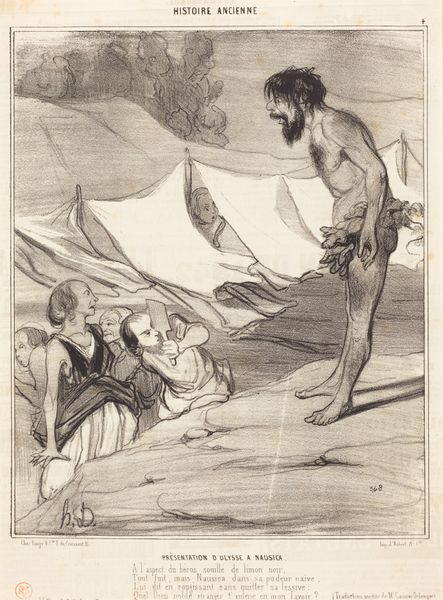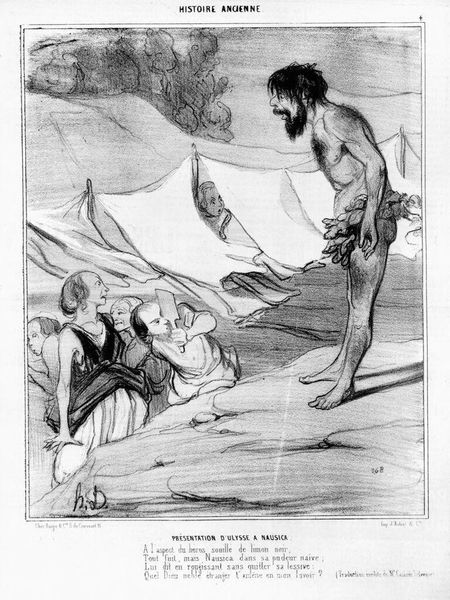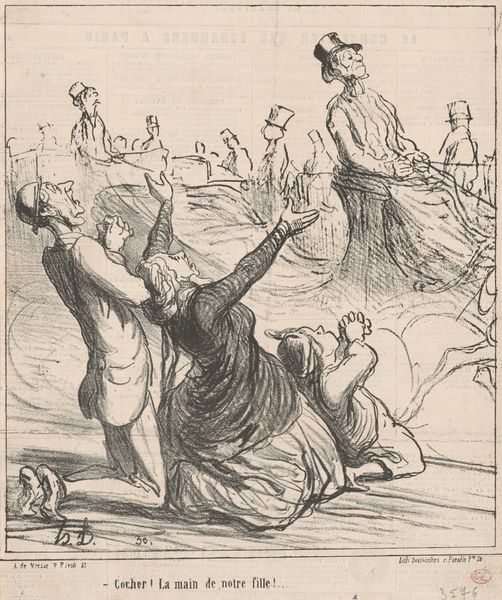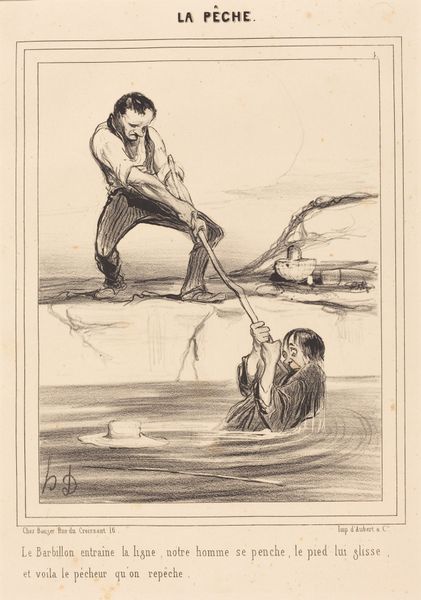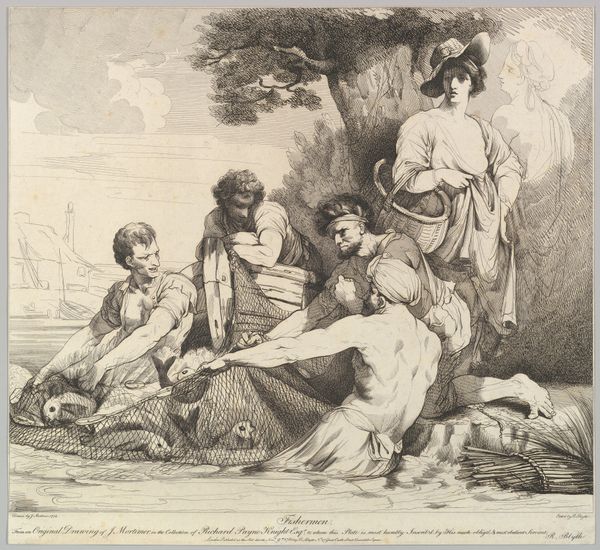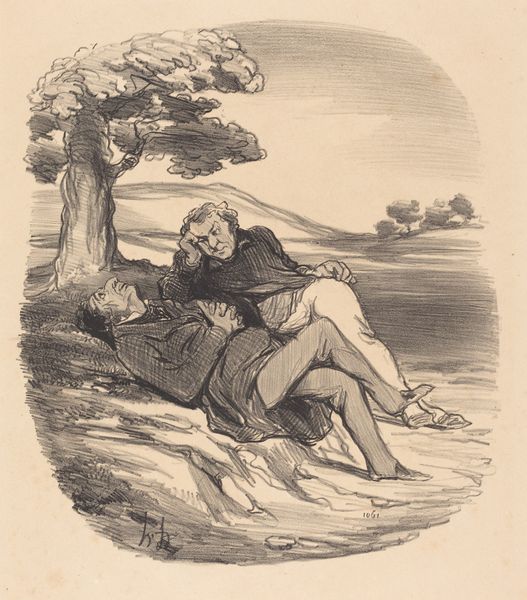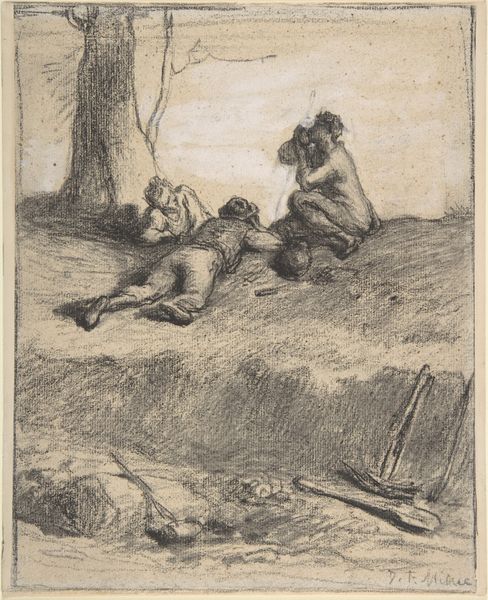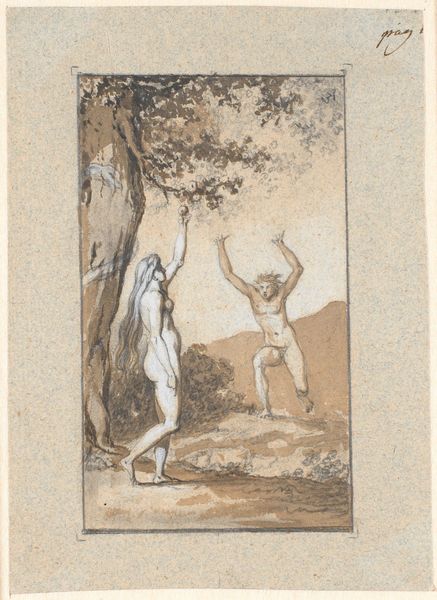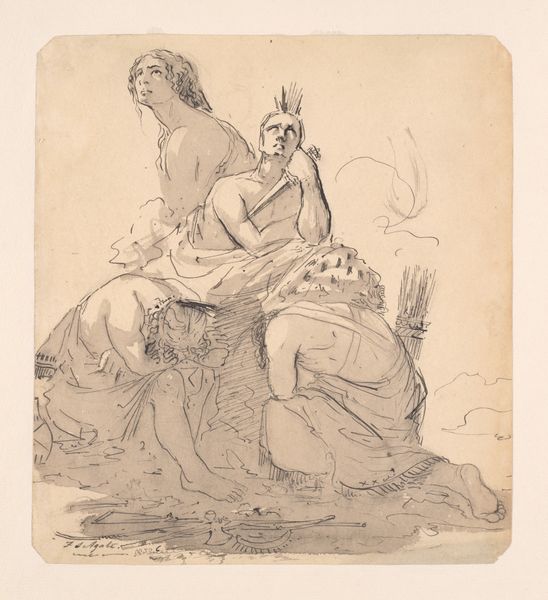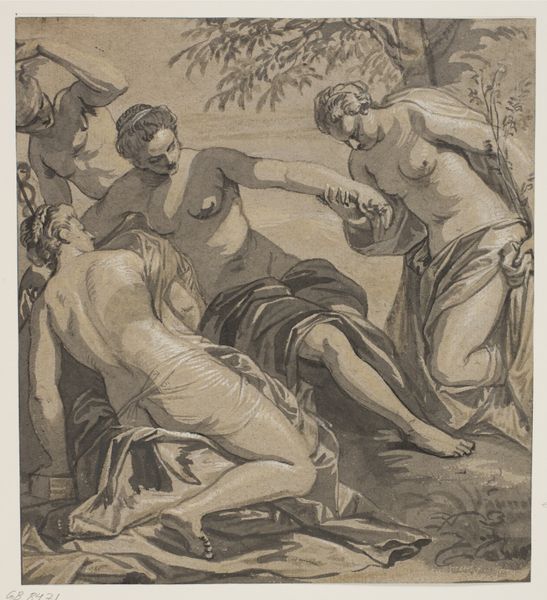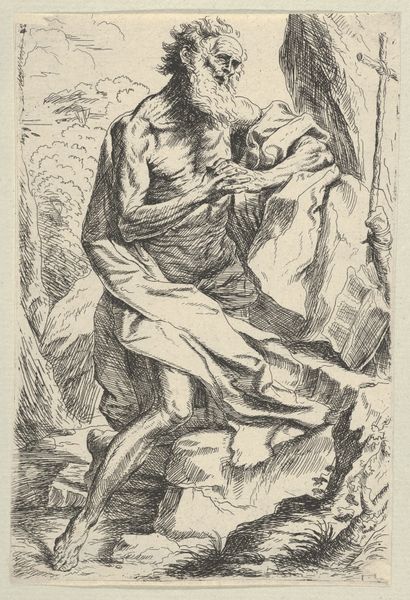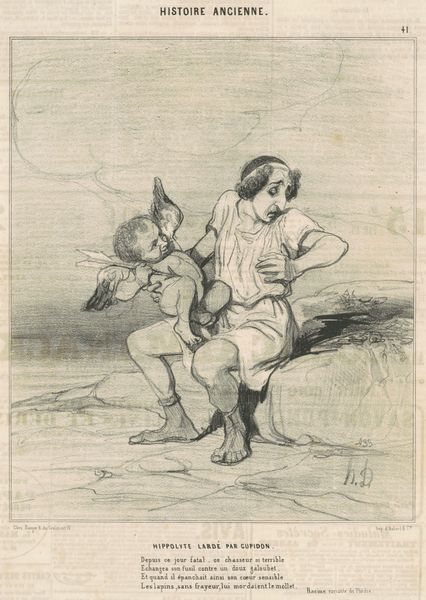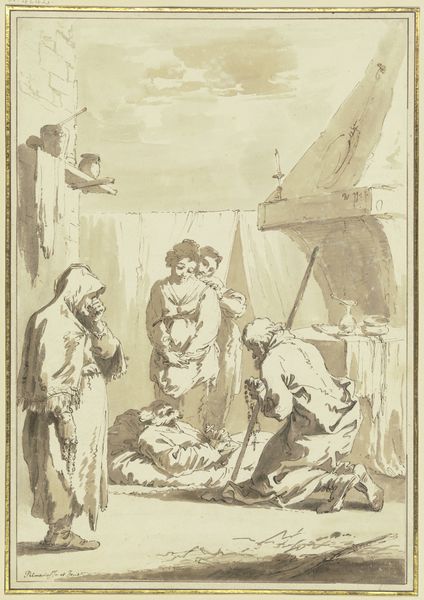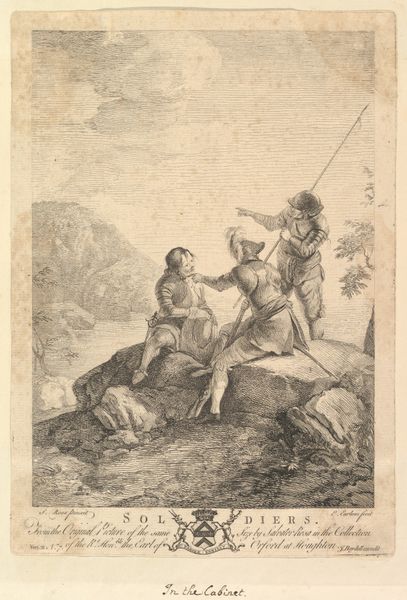
drawing, print, pencil
#
drawing
# print
#
caricature
#
pencil sketch
#
sketch book
#
figuration
#
pencil
#
history-painting
Copyright: National Gallery of Art: CC0 1.0
Curator: Let’s turn our attention to Honoré Daumier’s “Présentation d'Ulysse a Nausica,” created in 1842. He rendered it in pencil, resulting in a detailed print. What strikes you when you first look at it? Editor: It's the rawness that grabs me, the immediate contrast between the disheveled figure of Ulysses and the almost cartoonish reactions of Nausicaa and her entourage. It speaks volumes about power dynamics, doesn’t it? The vulnerability on one side versus the sheltered judgment on the other. Curator: Precisely! Daumier often used caricature to critique the bourgeoisie. We see it here – their exaggerated reactions to Ulysses underscore their sheltered existence, detached from the realities of hardship and survival. His work provided social commentary that often questioned societal norms. Editor: And this is a history painting, no? I love the intersection of the grand narrative with, what looks like at first glance, humorous sketch. It invites us to really think about how societal structures and privilege create this great divide. Like, whose story is this, really? Curator: Absolutely, it's not just a depiction of a scene from the Odyssey, but a reflection of the socio-political climate of Daumier's France. He consistently challenges traditional, heroic narratives, revealing their inherent biases and class-based perspectives through his artistry. Editor: And look at how Daumier’s captured Ulysses—so unkempt and disoriented—it evokes the very real human cost of conflict. He is devoid of the ideal, epic hero archetype—the artist seems to ask us what does it truly mean to survive, and who gets to tell the story? It isn't the hero’s perspective at all. Curator: Daumier subverts our expectations by making Ulysses appear almost pitiful rather than heroic. It encourages the viewer to question the glorified narratives of war and conquest that are so often prevalent. The work creates a conversation. Editor: This definitely prompts a reevaluation of heroism, of privilege, and how societal gaze informs everything we deem valuable. Daumier's sharp, emotive lines truly drive home that point. Curator: Indeed, it pushes us to analyze history, not merely accept it, through the prism of social justice and human dignity. Editor: So needed and prescient.
Comments
No comments
Be the first to comment and join the conversation on the ultimate creative platform.
